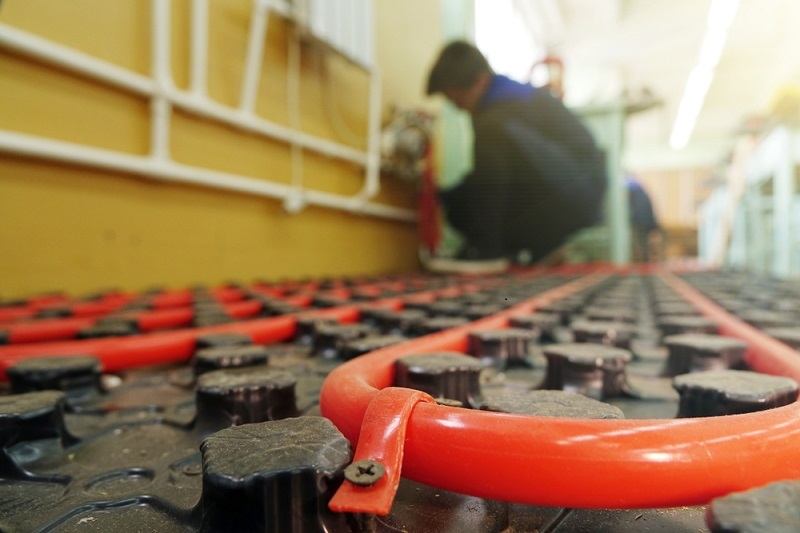Have you ever heard of a hydronic heating system? These are heat-transfer systems that employ water or other liquids to transmit heat around the house. This is in contrast to traditional air heating units, which blast the flame with fans. These hydronic systems have some significant advantages since they use a unique manner of heating the house. You will be able to determine whether these systems are appropriate for your heating needs after you finish reading this article.

Heat pumps, gas or electric furnaces, and other traditional heating systems can all be replaced with hydronic heating, which is a practical, efficient, and effective alternative. It can provide superb heating directed exactly where you want it in business settings at a lesser cost and with fewer difficulties than other systems. The following material will provide you a quick overview of hydronic heating basics and the numerous advantages that employing a hydronic system can provide.
How Do Hydronic Heating Systems Work?
Wondering how does a hydronic heating system work? Firstly, the hot water is routed through a network of pipes that can be hidden beneath the floor, in walls, or in other inconspicuous places. Then, a boiler is connected to a series of pipes or tubing in a hydronic system. The boiler then boils the water to the desired temperature, which is commonly a gas-powered model. The water is then circulated through the pipe system, which can be large enough to heat all portions of the structure.
Now, when pipes are put in the floor, heat radiates from the pipes and rises, heating the room from the floor up. A heat emitter, such as a radiator or another device that disperses the heat, could be used in numerous designs. A hydronic heating system can be utilized for a variety of purposes, including swimming pool heating, snow melting on driveways, and creating hot water for a building's tenants and occupants.
Here is the list of the benefits of a hydronic heating system.
- Operates silently without disturbing noises- If you install a hydronic heating system in your house or workplace, you will notice that it makes very little noise. You may occasionally hear a faint sound coming from the boiler when it boils the water. The noise is not similar to that of a split or ducted heating system.
- Eco-Friendly- A hydronic heating heats with natural resources such as natural gas or water. Also, compared to other systems like reverse cycle systems, the amount of energy used is around half as much. Furthermore, this system is well-sealed, with minimum emissions. As a result, it is seen as an environmentally responsible solution.
- Ideal for controlling room temperature- Hydronic heating systems use radiators with distinct room control temperature capabilities to assist set a pleasant temperature in each room.
- Keeps room warmer- One of the best feature of a hydronic heating system is that they provide warmth in a natural way, via radiation and natural convection. Burning does not cause the air to become dry, and it also does not cause humidity. As a result, the system is allergen- and dust-free, making it the best alternative for asthma sufferers.
- An affordable option- When you use a hydronic heating system at your place, it can turn out to be a less expensive option than other traditional electric heating systems. Electricity is used in split and ducted heating systems, which can result in high energy bills. However, with these hydronic heating systems, there can be noticed the reduction of the energy consumption.
Final Words
Since a single heat source can supply hot water to different kinds of heat emitters, it is the ideal choice for homeowners.

.png)


No comments:
Post a Comment